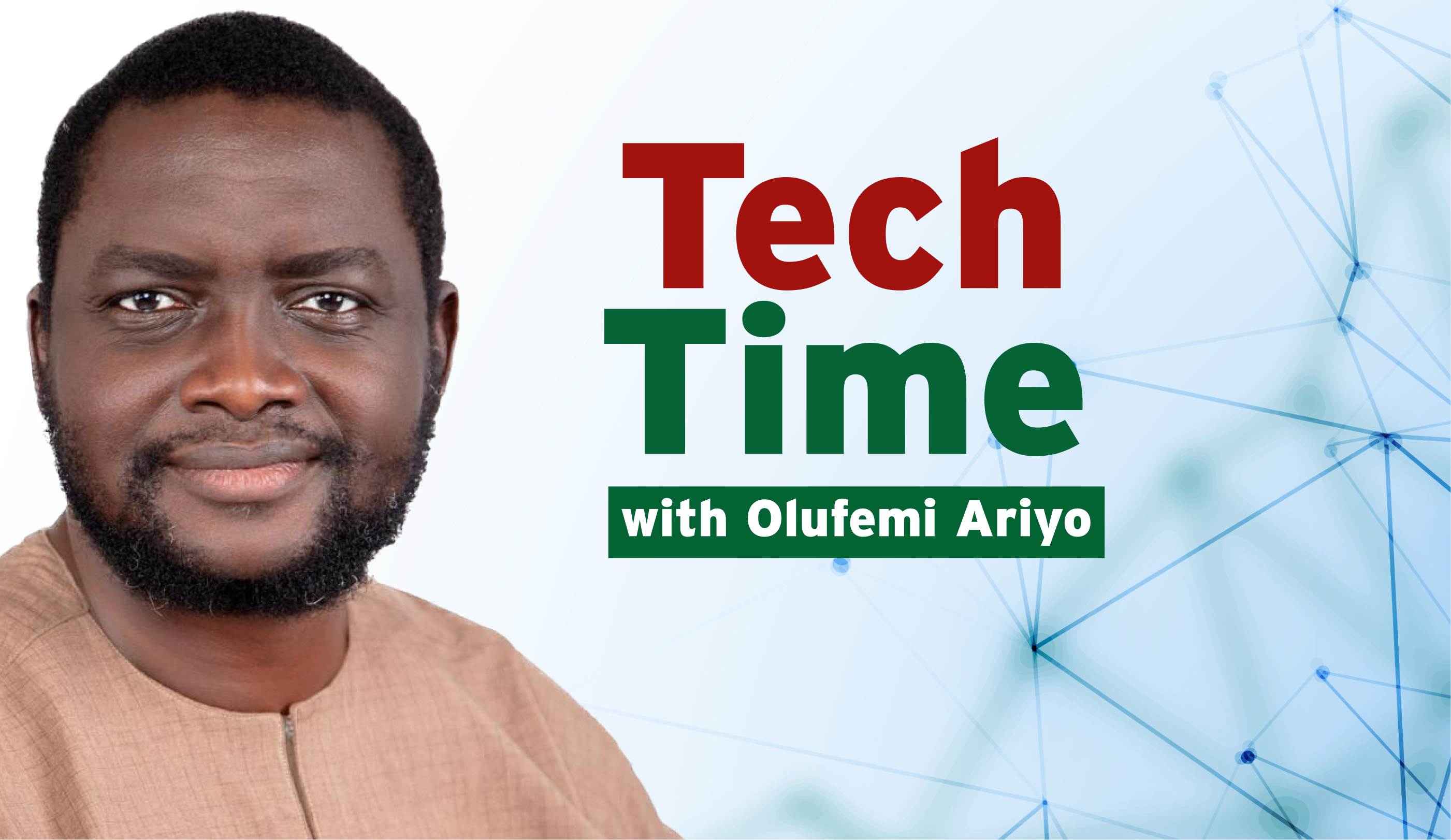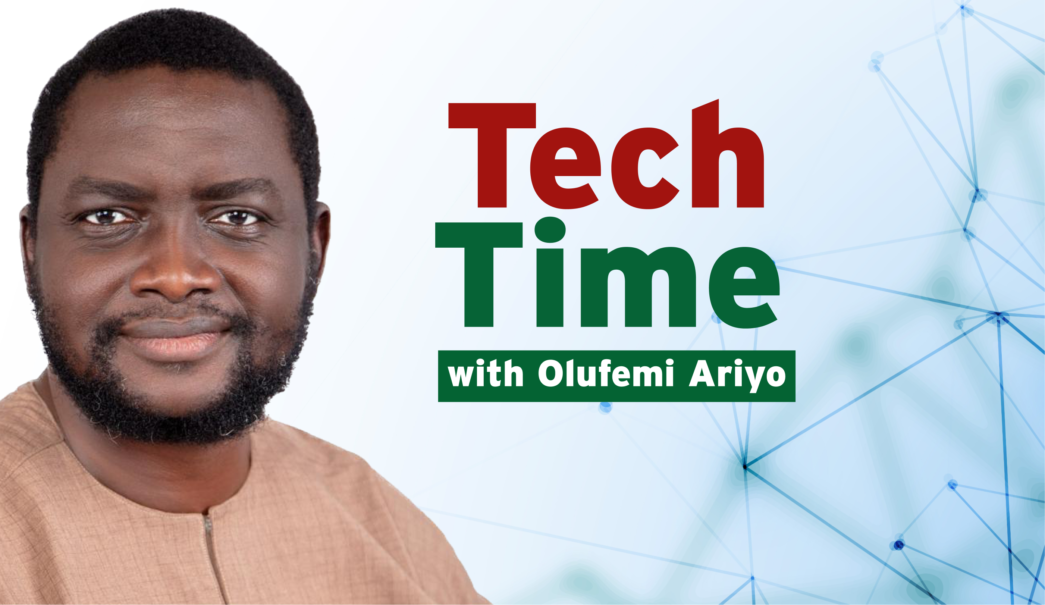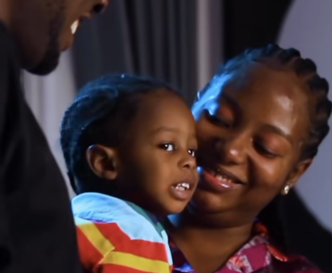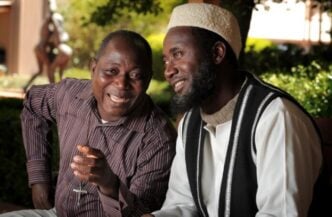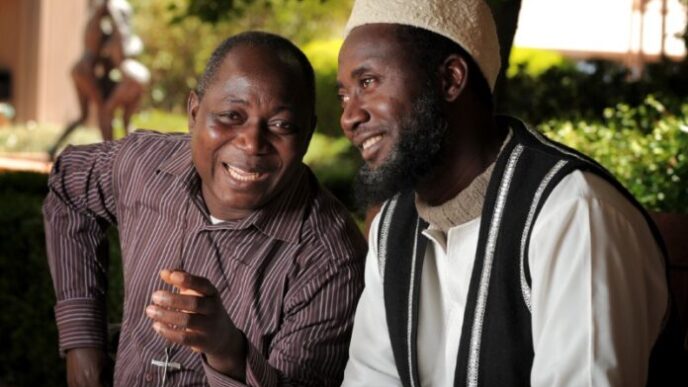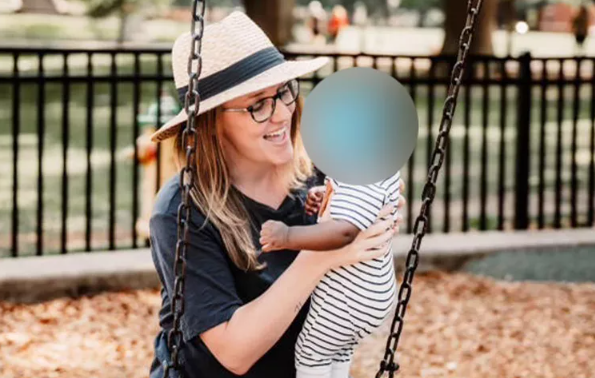As the global population continues to age, the need for skilled professionals in healthcare and elder care keeps growing at a progressive rate. The World Health Organization says that by 2030, one in six people worldwide are aged 60 or older, being over two billion people. This is a demographic shift that offers both opportunities and challenges for healthcare professionals and caregivers. With this aging population, the demand for elder care services also increases, and so does the necessity for a new set of skills that can accommodate the unique needs of older adults. In this context, the healthcare industry needs to undergo a transformation that integrates new technologies, innovative care models, and specialised knowledge. Skilling up for these changes is important for healthcare professionals, caregivers, and therapists to stay ahead of the curve and deliver high-quality care to the aging populations especially in Nigeria (and by extension Africa).
The Growing Demand for Elder Care in 2025
The global demographic shift toward an aging population presents both a challenge and an opportunity for healthcare systems across the world. The combination of rising life expectancy and declining fertility rates is contributing to an increasingly elderly population. This reality is especially evident in more developed nations, but in countries like Nigeria, the changes are becoming increasingly apparent, albeit at a different pace.
Today, Nigeria remains the largest and fastest-growing populations in Africa (about 1 in 6), and is expected to experience major changes in its population structure. While the country is still relatively young, the number of elderly individuals (especially those between the age of 50 and 70) is steadily growing due to growing expectations of what tech promises, a rise of healthy food choices, and better living conditions (for those with means). However, this demographic shift is occurring alongside economic hurdles, limited healthcare infrastructure, and cultural factors (emigrating doctors and nurses – “JAPA” – Just Away for Prosperity and Adventure or Journey Across Peoples’ Ambitions) that will heavily influence reduced supplies for elder care services in Nigeria.
Advertisement
The Nigerian Reality and Challenges of an Aging Population
The aging population presents major hurdles that will require thoughtful, innovative solutions. Currently, the country’s elderly population is still comparatively a minority; however, the rising global life expectancy means that this group will grow rapidly in the coming decades. As is common in other parts of the world, older Nigerians are increasingly living with chronic conditions such as diabetes, hypertension, arthritis, and cardiovascular diseases. Moreover, mental health issues, including cognitive decline and dementia, are expected to rise as the elderly population grows older.
Unfortunately, Nigeria’s healthcare system faces multiple bottlenecks that hinder its ability to meet the needs of an aging population. The healthcare infrastructure, though expanding in some urban centres, remains largely underdeveloped in rural and semi-urban areas. Access to quality healthcare services is still a major challenge, with only a small percentage of the elderly population receiving specialised geriatric care. Furthermore, Nigeria’s healthcare professionals are often not sufficiently trained in geriatrics, and the healthcare sector lacks a robust support system for long-term elder care (as doctors and nurses relocate). In Nigeria, it is common for families to shoulder the responsibility of caring for elderly loved ones, particularly in rural areas. However, as the number of elderly people grows, there will be more demand for professional healthcare providers, caregivers, and elder care facilities. This scenario is exacerbated by the fact that many families are experiencing urban migration (within Nigeria and metropolitan mega cities), which means fewer young people are available to provide direct care for elderly relatives.
Advertisement
The Role of Healthcare Systems in Adapting to the Aging Population
As of 2025, healthcare systems must adapt to the growing and urgent demand for elder care. This adaptation will require significant investment in both human resources and infrastructure, particularly for retired adults living in rented accommodations.
- Expanding the Elder Care Workforce: To meet the growing needs of elderly individuals, Nigeria must develop a robust workforce in geriatrics and elder care. This includes doctors and nurses, also physiotherapists, occupational therapists, social workers, and caregivers who specialise in the elderly. In the coming years, healthcare professionals will need specialised training in geriatrics, understanding the unique medical, psychological, and social needs of elderly patients. Geriatric care specialisation will become even more crucial as the elderly population grows, and healthcare providers will need to be equipped with the knowledge to manage chronic diseases, cognitive disorders, and multi-morbidity (where elderly individuals live with different chronic conditions at once). For instance, health professionals will need to be trained in managing the complexities of hypertension combined with diabetes or Alzheimer’s disease, common among aging Nigerians.
- Long-Term Care Facilities: As Nigeria’s elderly population grows, so will the demand for specialised long-term care facilities. In developed nations, assisted living homes and nursing homes are a common option for older adults who can no longer live independently. In Nigeria, however, the concept of long-term institutional care for the elderly is still relatively new. Most elderly individuals are cared for by their families, or, if financial resources permit, hired caregivers help manage their care at home. Today, Nigeria needs to explore models for elder care facilities, ranging from government-supported initiatives to private-sector solutions, to address this gap. These facilities should provide specialised medical care, rehabilitation services, and emotional support, focusing both on physical health and on the mental and emotional well-being of elderly individuals. These models need to be adaptable to local socio-cultural norms, where respect for the elderly is paramount, but also taking into account modern care practices and technologies.
- Innovation in Elderly Care:
Telemedicine and Assistive Technologies: Given the financial and infrastructural constraints Nigeria faces in providing physical healthcare, technology can be a game-changer. Telemedicine has already proven to be a valuable tool for overcoming distance and access issues in remote areas, and this trend will continue to expand notably in the future. With Telehealth services, elderly Nigerians in rural communities can access consultations from specialised doctors without needing to travel long distances. Telemedicine could also allow for remote monitoring of elderly patients’ health, enabling healthcare providers to track patients’ conditions such as blood pressure or glucose levels in real time, adjusting treatment plans accordingly.
Additionally, assistive technologies, such as mobility aids, AI-powered devices for medication reminders, and smart home technology, will become more commonplace in Nigerian homes. These tools will support elderly individuals in maintaining their independence for longer, while reducing the strain on caregivers. Training healthcare professionals in the use and management of such technologies will become a core part of skilling up for elder care in Nigeria.
Advertisement
Skilling Up for Elder Care in Nigeria
To successfully meet the growing demand for elder care in 2025, Nigeria must prioritise skilling up its workforce in several key areas:
- Training Healthcare Professionals: Doctors, nurses, and therapists will need to undergo specialised training in geriatrics, learning how to treat the unique health concerns of older adults. Nigerian medical schools and healthcare institutions can collaborate with international organisations to develop curricula that focus on geriatric care.
- Developing Caregiver Programs: As family caregiving is still the norm in many parts of Nigeria, professional caregiver training programs should be developed to ensure that individuals offering care at home are adequately equipped with the skills to handle the physical, emotional, and medical needs of the elderly.
- Adopting Telemedicine and Remote Monitoring: Given the challenges of accessibility and infrastructure in Nigeria, the integration of telemedicine into regular care for the elderly will be necessary. Training healthcare professionals to use telemedicine platforms and managing remote patient data will ensure that elderly individuals can receive continuous care even when they are not physically present in a healthcare facility.
- Promoting Assistive Technologies: Knowledge of assistive devices such as mobility aids, hearing aids, and smart home technology should be incorporated into the skill set of Nigerian healthcare professionals. They will need to understand how these technologies work, how to integrate them into patients’ care plans, and how to educate families on their use.
Emerging Skills for Healthcare Professionals and Caregivers
Today, in 2025, the demographic shift towards an aging population will place notable pressure on healthcare systems, making it crucial to address the specialised needs of older adults. As life expectancy increases and healthcare access improves, the demand for quality elder care will escalate, particularly as the elderly population will be living longer with “possible” chronic health conditions. To meet these growing demands, healthcare professionals and caregivers will need to “skill up” in various areas. These emerging skills, paired with innovations in technology, will help provide better healthcare and improve the quality of life for elderly Nigerians.
Advertisement
Next, we consider a broader look at some of the essential skills that will shape the future of elder care in Nigeria by 2025:
- Geriatric Care Specialisation: The need for geriatrics in Nigeria will be a pivotal component in caring for the growing elderly population. With aging often comes the prevalence of possibilities of chronic illnesses such as hypertension, diabetes, osteoarthritis, and cognitive disorders like Alzheimer’s and Parkinson’s. Currently, Nigeria’s healthcare system lacks a widespread, comprehensive focus on geriatrics. However, as the number of elderly individuals continues to grow, more healthcare professionals in Nigeria will need to specialise in this area. Nurses, physicians, and allied health professionals will need to gain a deeper understanding of age-related conditions and be prepared to manage chronic diseases, polypharmacy (when elderly individuals use multiple medications), and mental health challenges. Additionally, the culture of caregiving in Nigeria (where family members often bear the brunt of caring for elderly relatives) may also see a shift, with more professional healthcare providers being sought for geriatric care.
Skills Needed:
Advertisement
- Geriatric assessments: Healthcare workers will need the knowledge to assess the elderly for age-specific issues such as mobility, cognitive decline, and mental health.
- Chronic disease management: Healthcare providers will need to develop specialised care plans for managing the common chronic conditions of older adults.
- Pain management and end-of-life care: Skills for managing pain associated with aging conditions and providing end-of-life care will be increasingly in demand.
- Psychological care for dementia patients: Mental health issues, especially dementia, require specific care techniques that professionals must learn and apply in their practices.
- Robotics and Assistive Technologies: Nigeria’s growing need for elder care will coincide with innovations in robotics and assistive technologies, which can notably improve the lives of elderly individuals. Physical disabilities, like limited movement, are common among older adults. While physical therapy and medical treatments will be vital, assistive technologies like robotic exoskeletons, mobility aids, and AI-powered devices will help maintain independence, boost safety, and improve the quality of life for the elderly. In Nigeria, the application of assistive technologies may not be as widespread as in developed nations, but the potential is vast, especially in urban areas. These technologies could help elderly individuals who may not have access to specialised healthcare services. However, healthcare professionals and caregivers must be equipped to understand, manage, and troubleshoot these technologies as part of daily care routines.
Skills Needed:
- Familiarity with assistive technologies: Healthcare professionals and caregivers will need to learn how to integrate tools like mobility aids, exoskeletons, and smart home technologies into daily care plans.
- Patient education on technology use: Educating patients and their families about how to use these technologies correctly will be critical in ensuring their effectiveness.
- Monitoring and troubleshooting technology-assisted care: Skills in ensuring that assistive technologies function properly and troubleshooting common problems will be essential for caregivers.
- Telemedicine and Virtual Healthcare: The COVID-19 pandemic accelerated the adoption of telemedicine, and in 2025, virtual healthcare will become a standard method for providing healthcare to elderly Nigerians in special homes. For those living in rural or underserved areas where healthcare access is limited, telemedicine can bridge the gap by allowing remote consultations with specialists, reducing the need for travel, and providing timely access to care.
For Nigeria, where transportation and infrastructure challenges often impede access to healthcare, telemedicine could transform elderly care by providing a more affordable and accessible alternative to in-person visits. Healthcare professionals will need to become proficient in managing virtual appointments, delivering remote care, and understanding the nuances of patient interactions through digital platforms.
Advertisement
Skills Needed:
- Proficiency with telemedicine platforms: Healthcare providers will need to be comfortable using digital platforms for virtual consultations, including video calls, remote monitoring systems, and electronic health records (EHR) needs to be adopted.
- Communication skills for virtual consultations: With elderly individuals often being more vulnerable and less tech-savvy, healthcare professionals will need strong communication skills to effectively engage patients and their families during virtual visits.
- Understanding of data privacy and security: Protecting patient data and ensuring secure communication channels will be a priority, especially in a country like Nigeria, where cybersecurity issues are on the rise.
- Cognitive Health and Mental Wellness: The mental health and cognitive well-being of older adults in Nigeria are often overlooked, even as these issues become more prevalent in aging populations. Cognitive decline, dementia, and depression are common among elderly individuals. However, these issues are rarely addressed adequately in Nigerian healthcare settings.
As Nigeria’s elderly population grows, mental health support will become as important as physical health care. Healthcare professionals will need to be equipped with the skills to manage conditions like Alzheimer’s disease and to provide cognitive therapies and emotional support for the elderly. Additionally, integrating mental wellness practices such as social engagement, cognitive exercises, and mindfulness will be important to improving quality of life for older Nigerians.
Advertisement
Skills Needed:
- Cognitive therapy techniques: Training in therapies designed to maintain cognitive function and address conditions like dementia will be increasingly necessary.
- Emotional and mental health support: Healthcare professionals will need the skills to provide emotional support for elderly patients struggling with depression, anxiety, or loneliness.
- Dementia and Alzheimer’s care strategies: Special training on how to manage dementia patients effectively, offering practical caregiving strategies, and creating safe and supportive environments will be vital.
- Interdisciplinary Collaboration: Elder care is rarely a solo endeavour. In fact, it often requires a team of professionals working together to ensure the elderly individual’s needs are met. In a country like Nigeria, where the healthcare system has traditionally been fragmented and underfunded, interdisciplinary collaboration will be key in the coming years. Healthcare professionals, caregivers, family members, and even social workers will need to collaborate seamlessly to provide the best care possible for elderly individuals. Today, Nigeria needs to develop and promote collaborative care models where professionals from different disciplines (medicine, nursing, social work, physiotherapy, and psychology) work closely together. Involving family members in this process will also require effective communication and relationship-building skills, particularly in a cultural context where family ties are crucial.
Skills Needed:
- Collaborative care planning: Healthcare professionals will need to work with a broad range of individuals, including other healthcare providers and family members, to develop effective care plans.
- Effective communication in multi-disciplinary teams: Healthcare workers will need to be proficient in communicating across disciplines to ensure that everyone involved in the care process is on the same page.
- Conflict resolution and family engagement: Ensuring that elderly patients receive optimal care may sometimes require mediating disagreements between family members or resolving conflicts within care teams. Skills in conflict resolution and family engagement will be essential.
The future of elder care in Nigeria will depend on a multi-pronged approach that incorporates specialised education, emerging technologies, and collaborative efforts across disciplines. As the population continues to age, Nigeria must invest in the training of healthcare professionals and caregivers to meet the evolving needs of the elderly population. With the right skills, innovations, and approaches, Nigeria can provide its elderly citizens with high-quality care and support, ensuring a better quality of life for them and easing the burden on families and the healthcare system alike. By preparing now for the demands of tomorrow, Nigeria can build a healthcare system that is truly capable of meeting the needs of its aging population.
Training and Education for the Elder Care Workforce in Nigeria
As Nigeria’s elderly population continues to grow, the need for a well-trained, knowledgeable workforce in elder care becomes paramount. The healthcare system will need to expand its educational offerings and adjust curricula to ensure that healthcare workers, caregivers, and therapists are prepared to meet the evolving demands of aging patients.
Evolving Educational Programs to Meet Future Needs
Today, it has become crucial for universities, vocational schools, and online platforms to design and implement specialised programs that focus on geriatrics, elder care, and related fields. These training programs will provide foundational knowledge and practical skills to those entering the healthcare profession, preparing them to handle the complex health challenges faced by the elderly population.
For instance, universities in Nigeria may begin offering specialised degrees or certifications in geriatric medicine, focusing on understanding age-related diseases, palliative care, and elderly mental health. Currently, some universities in Nigeria, such as the University of Lagos and Obafemi Awolowo University, offer courses related to nursing, public health, and medicine, but a curriculum specific to geriatrics and elder care is not yet widely available. Expanding the scope of these offerings will be essential to meeting the demands of the aging population.
Moreover, vocational schools can offer shorter, hands-on certification programs in fields like dementia care and palliative care. These specialised programs will help caregivers and entry-level healthcare workers gain practical knowledge that can be immediately applied to caring for elderly individuals.
Examples:
- University of Lagos could introduce a Geriatric Care course within its Nursing and Medical curriculum, focusing on providing comprehensive care for elderly patients with chronic conditions.
- Vocational training centres in urban areas like Lagos and Abuja could begin offering short courses on dementia care, where caregivers learn how to assist elderly patients with Alzheimer’s and other cognitive impairments.
Adapting to the Integration of Technology in Elder Care
The future of elder care in Nigeria will be progressively shaped by technology. To prepare healthcare professionals for these changes, institutions should partner with tech companies that specialise in healthcare innovation and assistive devices. For example, universities could collaborate with local technology firms or international organisations to provide training on AI-powered health assistants, robotic mobility aids, and telemedicine platforms.
Given that technology adoption in Nigeria is accelerating, particularly in urban areas, healthcare workers must become familiar with innovations like telemedicine platforms, mobile health applications, and assistive technologies. This ensures that they are able to support elderly patients in their medical needs, while providing emotional and social support using digital tools that can connect them to family members and social networks.
Examples:
- Telemedicine Platforms: Universities could collaborate with companies offering telemedicine solutions like Doctoora, a Nigerian telemedicine service, to train students and healthcare professionals on how to conduct virtual consultations with elderly patients.
- Robotics and Assistive Devices: Nigeria’s healthcare sector could partner with robotic companies (like Robot Therapy Solutions) to provide training on the use of robotics for elderly patients who may need mobility aids or assistance in daily activities.
Certifications for Specialised Skills in Elder Care
As the demand for specialised care grows, certifications in geriatrics, dementia care, and telemedicine will be essential for healthcare professionals. Caregivers and nurses who have gained certifications in palliative care or dementia care will be better equipped to handle the needs of elderly patients. By obtaining professional certifications, healthcare workers will not only improve their skills but also increase their employability in the expanding elder care sector.
In Nigeria, organisations like the Nigerian Association of Geriatrics and Gerontology (NAGG) could introduce certification programs that specifically focus on elderly care. Similarly, the Nigerian Nurses Association could partner with international bodies to offer short-course certifications in specialised fields such as palliative care or telemedicine.
Examples:
- Palliative Care Certification: A Nigerian nurse specialising in palliative care could seek certification through the Nigerian Palliative Care Association or international bodies like The American Academy of Hospice and Palliative Medicine to gain expertise in end-of-life care.
- Dementia and Alzheimer’s Care: A certification in dementia care can be offered by specialised training centres and could be made available through collaboration with international experts to ensure that the healthcare workforce is well-versed in the management of cognitive disorders.
The Future of Elder Care as a Technology-Driven Industry
In 2025, elder care should be characterised by personalised, tech-enabled care solutions designed to empower older adults to live more independently while receiving the necessary healthcare services. Technology, from telemedicine consultations to AI-powered home assistants, will play a pertinent role in allowing older adults to stay in their homes longer and continue engaging with their communities. For Nigeria, where long-term institutional care is not widespread, home-based elder care will be a viable option for many elderly individuals. In this context, the role of caregivers, both formal and informal, will become even more important. With the adoption of technology such as smart home devices, robots for assistance with mobility, and telehealth consultations, the future of elder care in Nigeria will likely take on a more independent, tech-supported model.
Examples:
- Smart Home Technology: Nigerian caregivers could use systems such as Google Home or Amazon Alexa to remind elderly individuals about their medication schedules or appointments. Additionally, home sensors could alert caregivers about safety hazards such as falls.
- AI-powered Health Monitoring: Elderly patients could use wearables that track their heart rate, blood pressure, or even sleep patterns. For instance, health monitoring devices like those provided by HealthPlus could be integrated into elder care to allow caregivers to monitor their patients remotely.
In conclusion, the shift towards a more elderly population in Nigeria calls for a massive transformation in the way the country approaches healthcare for older adults. As the demand for specialised care grows, Nigeria must invest in education and training programs for healthcare professionals, caregivers, and therapists. Universities, vocational schools, and online platforms will play a major role in providing the necessary skills in geriatrics, dementia care, and telemedicine. Incorporating technology into elder care solutions will enable older Nigerians to live with dignity and independence. With the right investments in education, partnerships with tech companies, and certifications in specialised fields, Nigeria can develop a skilled workforce that is well-equipped to meet the needs of its aging population. Through continuous training and adoption of new healthcare technologies, elder care in Nigeria will improve the quality of life for the elderly while also creating opportunities for innovation in the healthcare sector, promoting economic growth and development.
Thank you for the investment in time and attention. Please follow me on Medium: https://medium.com/@roariyo and LinkedIn: https://www.linkedin.com/in/olufemiariyo/ or email me at [email protected]
